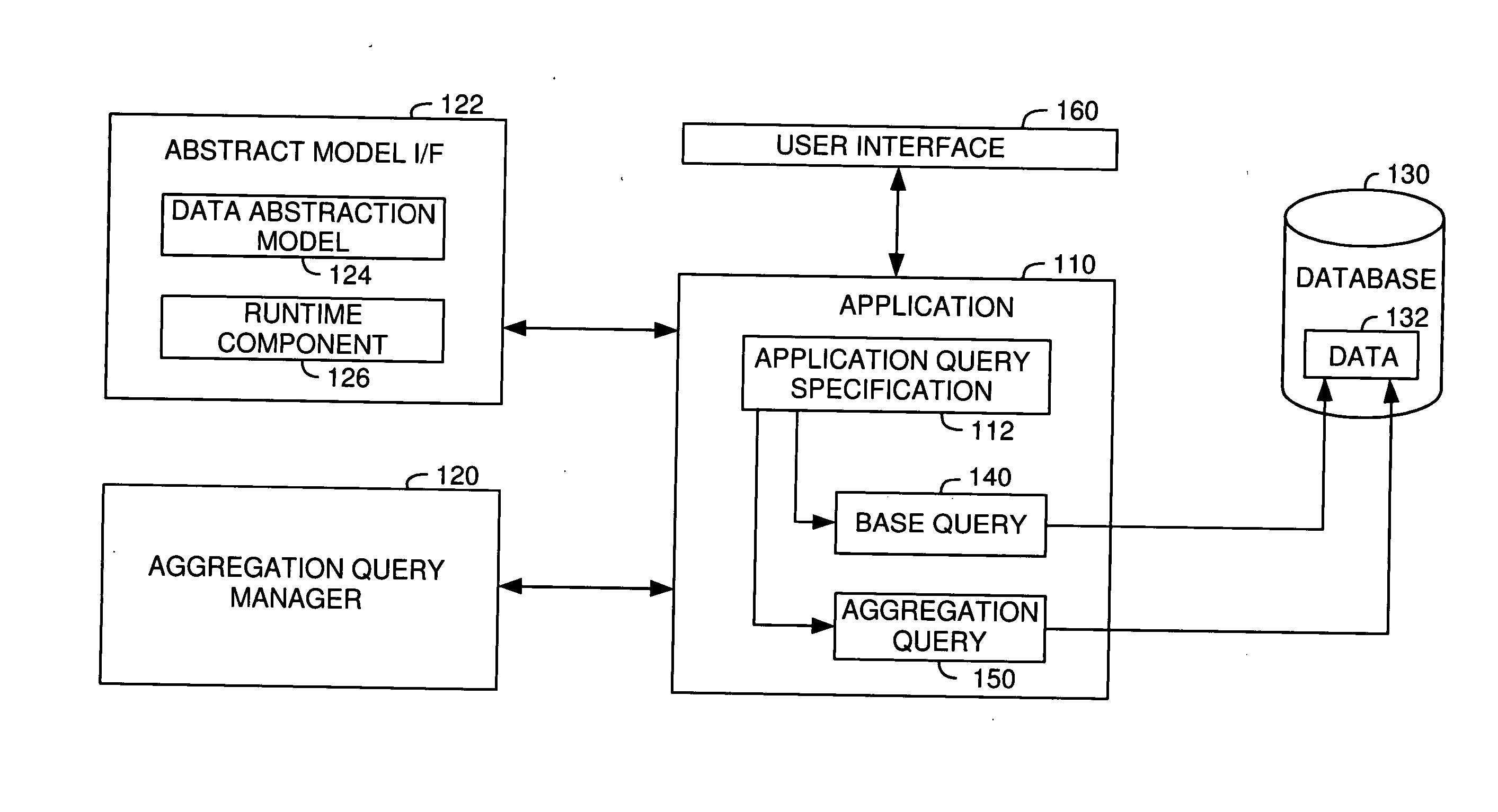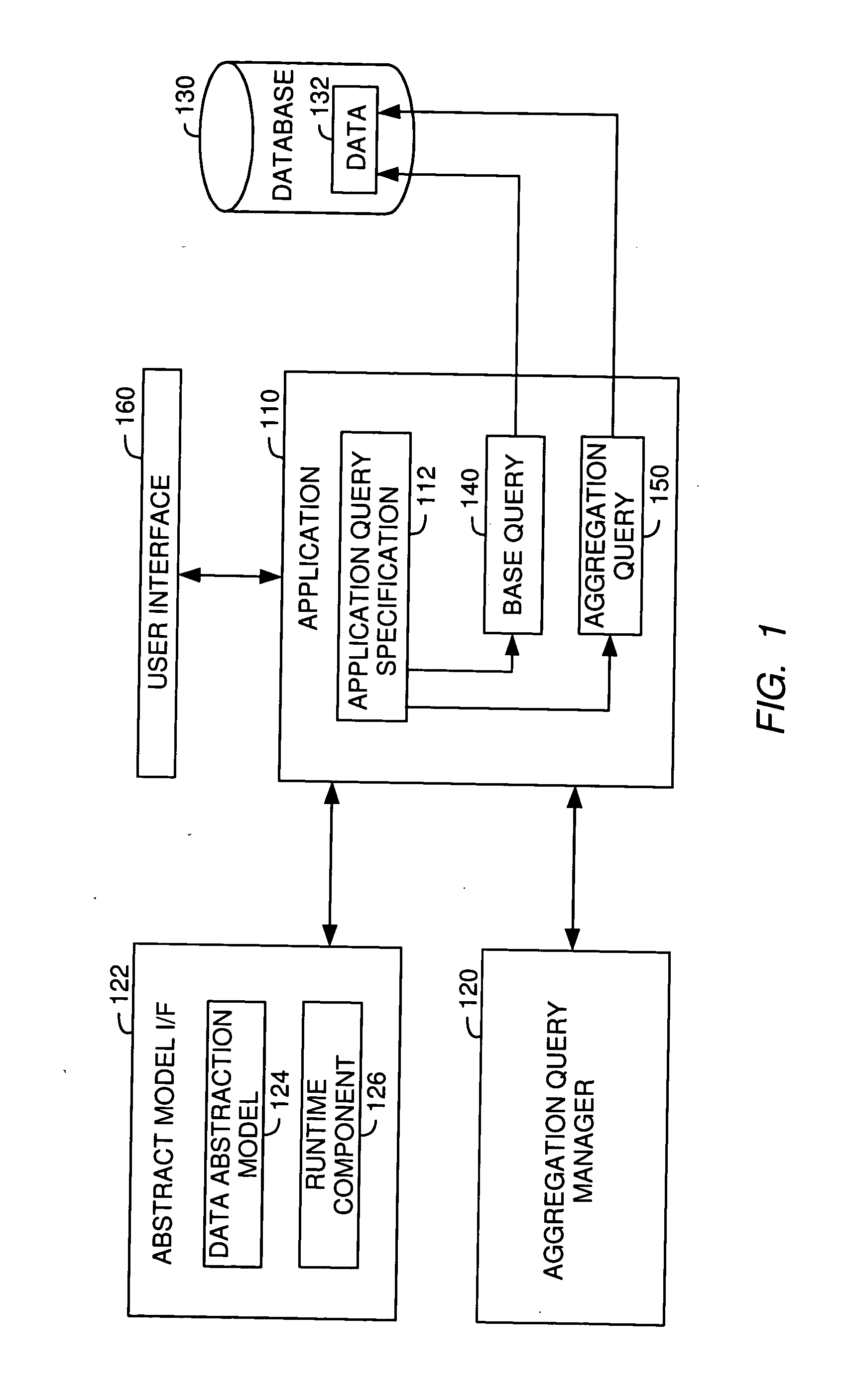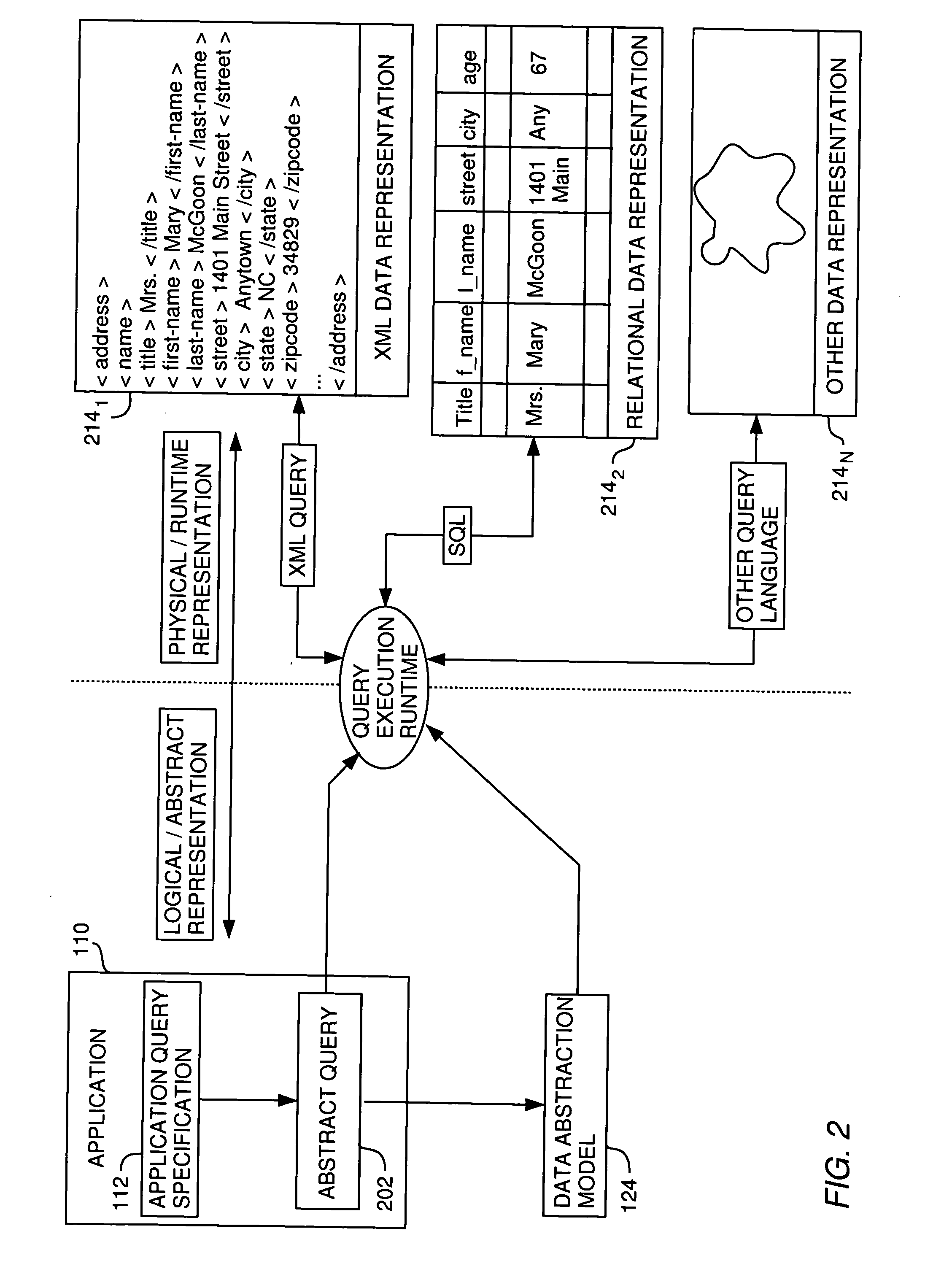Abstract statement aggregation and grouping support
a grouping support and abstract statement technology, applied in the field of database data processing, can solve the problems of cumbersome user experience, inefficient use, and inability to get at summary information in the same way
- Summary
- Abstract
- Description
- Claims
- Application Information
AI Technical Summary
Benefits of technology
Problems solved by technology
Method used
Image
Examples
Embodiment Construction
Introduction
[0026] The present invention is generally directed to a method, system and article of manufacture for processing queries that are executed against a database and, more particularly, for processing aggregation queries that are executed against a database. Aggregation queries are executed against a database to obtain summary information related to data in the database.
[0027] According to one aspect, an aggregation query can be generated by an aggregation query manager on the basis of an initial query. The initial query may include one or more result fields for which data is to be returned upon execution of the initial query against the database. The initial query and any other query that is not configured to perform an aggregation operation is also referred to herein as a base query. An aggregation operation may be associated with each result field of a base query to formulate an aggregation query. Accordingly, the aggregation query is configured to return aggregated in...
PUM
 Login to View More
Login to View More Abstract
Description
Claims
Application Information
 Login to View More
Login to View More - R&D
- Intellectual Property
- Life Sciences
- Materials
- Tech Scout
- Unparalleled Data Quality
- Higher Quality Content
- 60% Fewer Hallucinations
Browse by: Latest US Patents, China's latest patents, Technical Efficacy Thesaurus, Application Domain, Technology Topic, Popular Technical Reports.
© 2025 PatSnap. All rights reserved.Legal|Privacy policy|Modern Slavery Act Transparency Statement|Sitemap|About US| Contact US: help@patsnap.com



